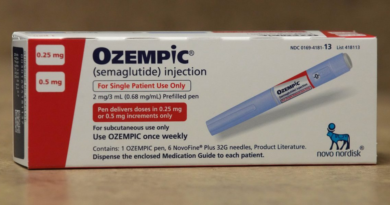Officials rush to order EpiPens after hurricane unleashes swarms of wasps and bees
Deadly flooding from Hurricane Helene in western North Carolina has also disrupted the underground nests of yellow jackets, bees and other insects, causing them to swarm and sting people struggling to recover from the storm.
It’s caused such a surge in requests for medication to protect people allergic to stings that the North Carolina Department of Health and Human Services is buying Benadryl and epinephrine injections to help fill requests through hospitals, emergency medical personnel and doctors. And the humanitarian aid group Direct Relief says it has sent more than 2,000 EpiPen injections to community health centers, clinics and pharmacies across western North Carolina.
“With every disaster, we get requests for EpiPens but this one is definitely an outlier,” said Alycia Clark, Direct Relief’s chief pharmacy officer. Many of the people coming in with stings are electricians working to restore powerlines and other outdoor workers, Clark said.
Pharmacists in the state can also provide emergency refills for people who are already prescribed allergy medications, according to a state health department spokesperson. The state is planning to allow people to buy epinephrine injections such as EpiPens without a prescription, and it is working to collect and distribute donations of medicines.
While most people are not allergic to stings from bees and other insects, irritation and pain can be intense and stings can swell and remain painful for days, according to the Mayo Clinic. And some people can have a severe allergic reaction that can lead to anaphylaxis that can cause difficulty breathing, swelling of the tongue and throat, weak pulse and loss of consciousness. In these situations, it’s critical to administer epinephrine immediately.
Being stung more than a dozen times can also cause a buildup of venom in the body that can cause serious sickness that can include dizziness, fever, convulsions or vomiting.
To reduce the risk of getting stung, experts recommend wearing long and light-colored clothing that has a smooth finish, avoiding perfumes and smelly soaps and deodorants. If there’s only one stinging insect around, they recommend staying calm and still, and to avoid swatting at it. But if several are stinging, they say it’s better to try to quickly get indoors or into a shaded area. Bees release a chemical when they sting that attracts other bees.
The Broadsheet: Covers the trends and issues impacting women in and out of the workplace and the women transforming the future of business.
Sign up here.




